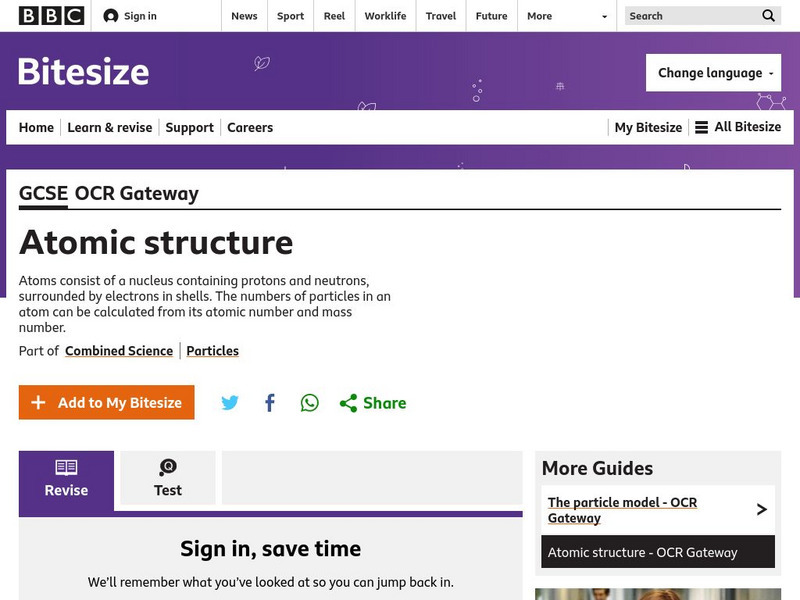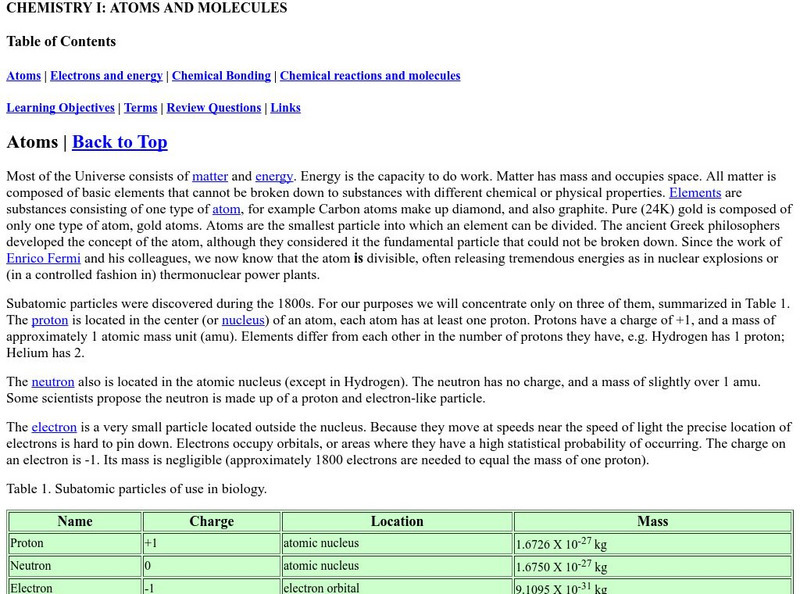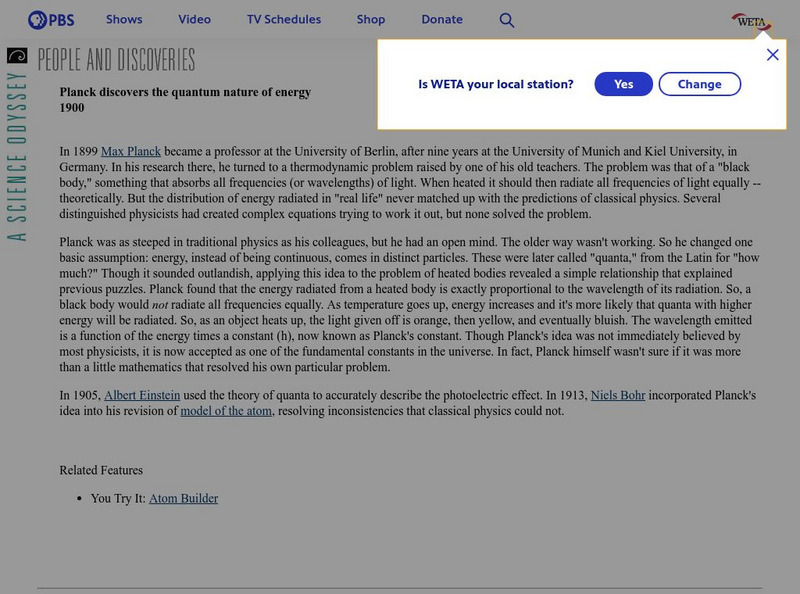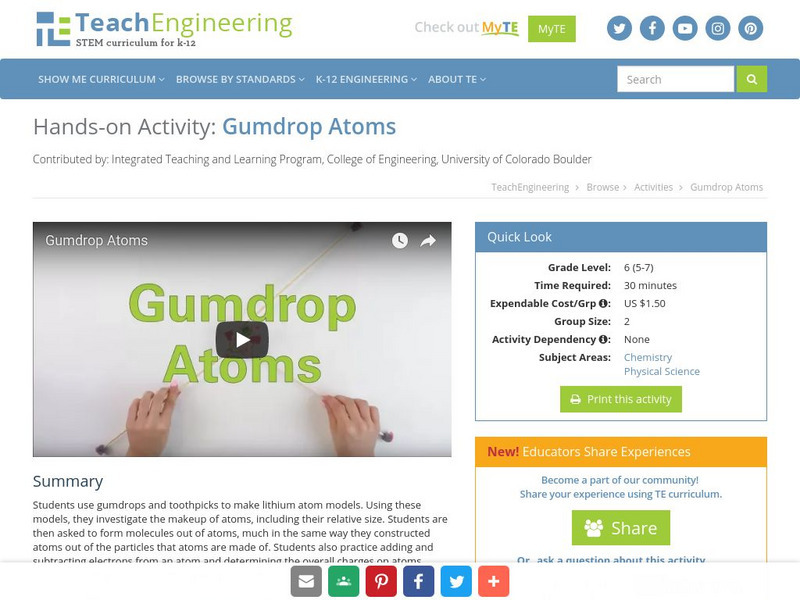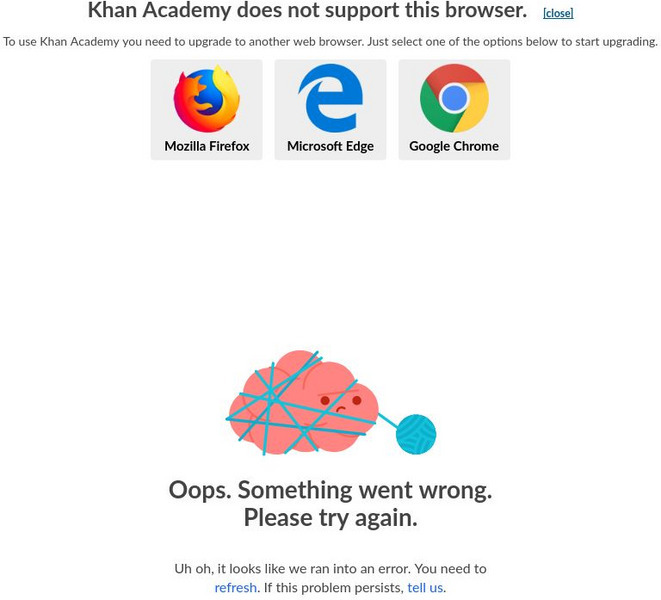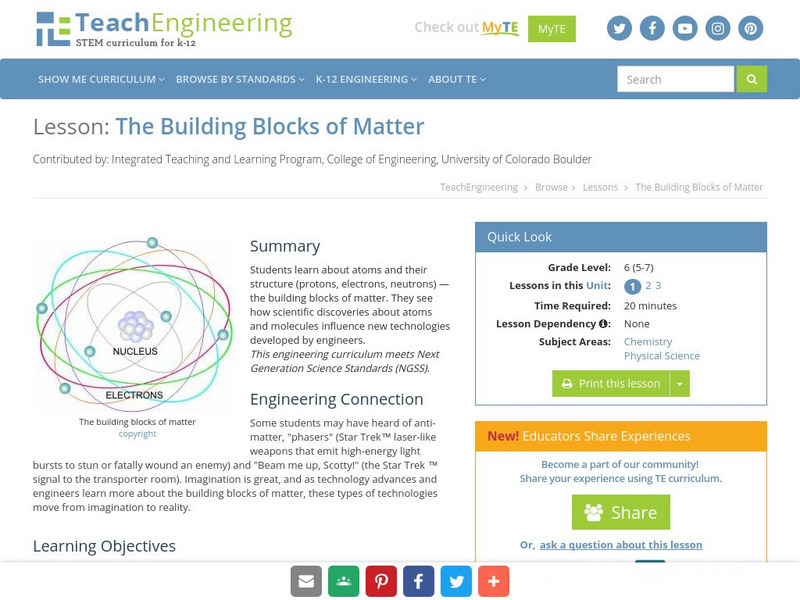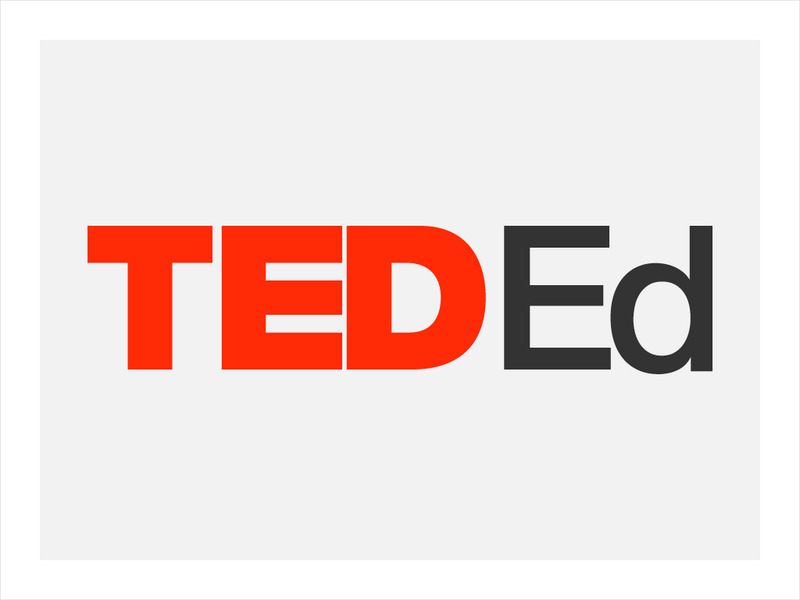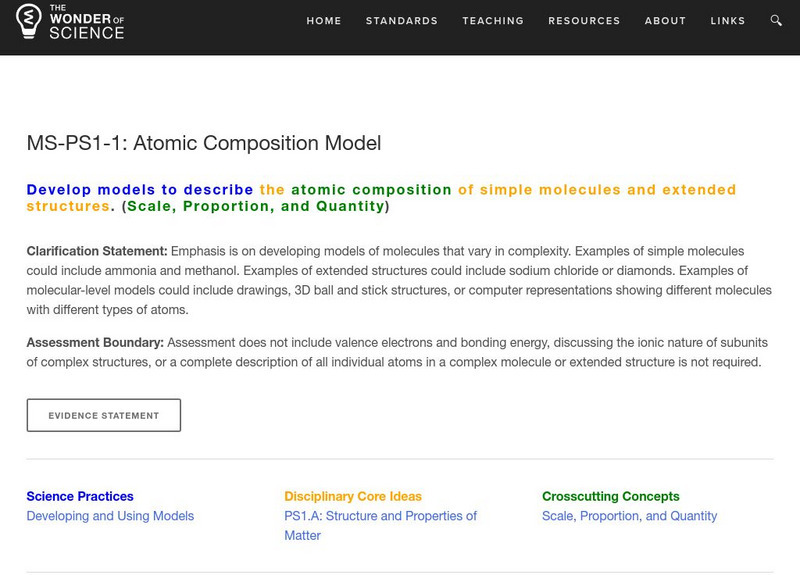Chem Tutor
Chem tutor.com: Atomic Structure
This page provides a thorough and comprehensible discussion of the structure of the atom. Includes helpful diagrams and instructions for filling electron shells, reading the Periodic Table, and drawing Lewis Structures.
Mocomi & Anibrain Digital Technologies
Mocomi: Structure of an Atom
An atom is made of three parts - protons, neutrons, and electrons. Here you can explore these different parts.
OpenStax
Open Stax: Elements and Atoms, the Building Blocks of Matter
This site provides an overview of elements and atoms, the building blocks of matter.
Museum of Science
The Atoms Family: Spectroscope of an Atom
"The Phantom has provided you with a simulated spectroscopy of an Atom! Amuse the Phantom by observing the spectroscope and you'll learn more about the Atom." Observe and review the structure of the atom.
BBC
Bbc: Gcse Bitesize: Atomic Structure
This lesson focuses on the structure of atoms. All substances are made from atoms. Each atom is made of a nucleus - containing protons and neutrons - surrounded by electrons. It provides a link to an assessment.
University of Colorado
University of Colorado: Ph Et Interactive Simulations: Models of the Hydrogen Atom
How did scientists figure out the structure of atoms without looking at them? Try out different models by shooting light at the atom. Check how the prediction of the model matches the experimental results.
CK-12 Foundation
Ck 12: Earth Science: Atoms to Molecules Study Guide
Understand the basic structure of atoms and molecules in the Earth's crust.
Science Struck
Science Struck: What Makes Up an Atom?
Describes the structure of an atom and the characteristics of the electrons, neutrons, and protons inside it. Includes some interesting facts about atoms.
Estrella Mountain Community College
Online Biology Book: Chemistry I: Atoms and Molecules
In this online biology textbook, learn about atoms and molecules as they relate to life. Find out about topics such as electrons and energy, chemical bonding, and chemical reactions.
PBS
Pbs: Planck Discovers the Quantum Nature of Energy
PBS offers a short summary of the discovery of the quantum nature of the atom by Max Planck. Easy to follow.
TeachEngineering
Teach Engineering: Gumdrop Atoms
In this activity, students make a model of a lithium atom using gumdrops and toothpicks. Using this model, they investigate the makeup of an atom, including its relative size. Students also practice adding and subtracting electrons from...
Khan Academy
Khan Academy: Dalton's Atomic Theory
An article describing Dalton's atomic theory. Learn how this theory was the first attempt to describe a fundamental part of matter, atoms. Article also discusses where the theory is incorrect based on the knowledge we have today.
TeachEngineering
Teach Engineering: The Fundamental Building Blocks of Matter
This lesson plan explores the fundamentals of atoms and their structure. The building blocks of matter (protons, electrons, neutrons) are covered in detail. Students think about how atoms and molecules can influence new technologies...
American Chemical Society
Middle School Chemistry: Represent Bonding With Lewis Dot Diagrams
Learners draw and interpret Lewis dot diagrams for individual atoms and both covalent and ionic compounds.
Science Struck
Science Struck: Plum Pudding Model
Describes J.J. Thomson's theory of atomic structure, called the 'Plum Pudding Model,' and how it was disproved by Ernest Rutherford.
Science4Fun
Science4 Fun: Chemical Bonding
What is a chemical bond? Learn about the structure of an atom, why bonds are formed, and the different types of chemical bonds.
TED Talks
Ted: Ted Ed: What Is the Shape of a Molecule?
George Zaidan and Charles Morton shape our image of molecules. [3:47]
Chem Tutor
Chem Tutor: Chemistry: Compounds
This instructional activity focuses on chemical compounds including Ionic and Covalent Bonds, Valences, Lewis Structures, Binary Covalent Compounds, Radicals or Polyatomic Ions, and much more. It also includes a compound worksheet in...
Khan Academy
Khan Academy: Dalton's Atomic Theory
Article explores the key points of Dalton's atomic theory and the laws of conservation of mass and constant composition. Which points do we still use today?
Science Buddies
Science Buddies: Study Chirality With a Homemade Polarimeter
Some molecules can be either left- or right-"handed." The left- and right-handed molecules have the same number and type of atoms, and their chemical structures look identical, but they are actually mirror images of each other. Many...
OpenStax
Open Stax: Andrew R. Barron: Valence Shell Electron Pair Repulsion (Vsepr) Theory
Detailed explanation of Valence Shell Electron Pair Repulsion (VSEPR) Theory with examples and questions for the reader to check comprehension. Also includes step-by-step instructions for correctly building molecules using VSEPR Theory....
The Wonder of Science
The Wonder of Science: Ms Ps1 1: Atomic Composition Model
A collection of lesson plans for helping middle schoolers understand atomic composition. Site uses work samples, phenomena, assessment templates, and videos to plan lessons to describe the atomic composition of simple molecules.
Khan Academy
Khan Academy: Alcohol Production and Absorption
Read a passage about alcohol production and absorption and answer the follow-up questions to practice for the MCAT.
Other popular searches
- Atomic Structure
- Atomic Structure Time Line
- Atomic Structure Crossword
- Atom Structure
- Atomic Structure Lesson Plan
- Atomic Structure Worksheet
- Basic Atomic Structure
- Atomic Structure Bohr Model
- Atomic Structure Interactive
- Chemistry Atomic Structure
- Atomic Structure Lewis Dots
- The Atomic Structure

